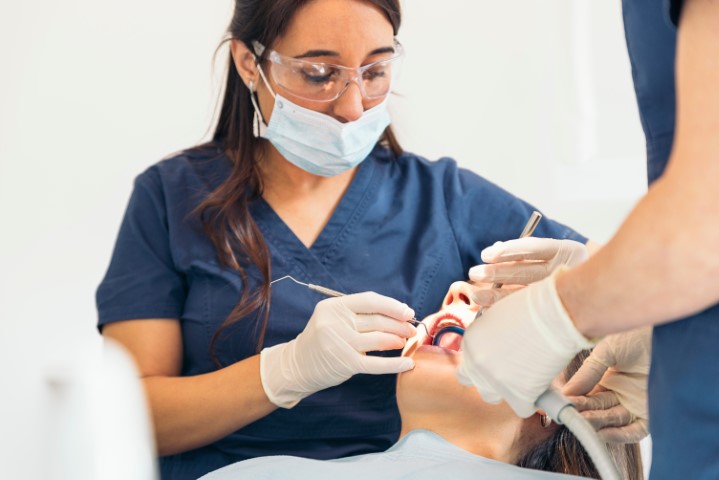Every child’s smile is unique—and so too is their journey toward lifelong oral health. From the moment of birth, proactive care plays a critical role in shaping healthy dental habits that last well into adulthood. Establishing early routines and understanding age-specific needs not only helps prevent common issues but also sets a foundation for a confident smile.
As families navigate the ever-changing landscape of childhood development, clear guidance on routine dental care becomes essential. Evidence-based practices offer a roadmap for parents to follow, ensuring that each stage—from infancy through adolescence—is met with tailored strategies designed to support and enhance oral health. Dispelling misconceptions about pediatric dental care is equally important; by challenging outdated beliefs, families can make informed decisions that benefit their children’s well-being.
At the heart of effective family dentistry lies a commitment to education and prevention. By focusing on routine check-ups, daily hygiene practices, and age-appropriate treatments, parents can actively contribute to their child’s dental health journey. This approach not only minimizes the risk of complications but also instills habits that promote long-term oral wellness—ultimately ensuring every smile is nurtured with care and expertise.
The Journey of Oral Health from Infancy to Adolescence
The first few years of life are critical for establishing good dental hygiene. Infants should have their first dental visit within six months of the eruption of their first tooth or by one year of age, whichever comes first. During these early visits, parents can expect a thorough examination of the child’s mouth and teeth to ensure there are no underlying issues.
As children grow into toddlers, they begin to develop more independence in their daily routines—including brushing their teeth. This is an excellent time for parents to model good oral hygiene habits. Encourage your toddler to brush their teeth twice a day with a pea-sized amount of fluoride toothpaste and help them floss once a day.
By the time children reach school age, they should have established a regular dental care routine. This includes brushing twice daily, flossing at least once a day, and scheduling routine check-ups every six months. At these appointments, dentists will monitor for cavities, assess oral hygiene practices, and provide guidance on maintaining optimal dental health.
Dental sealants are highly recommended during this stage as they protect the chewing surfaces of molars from decay. These thin plastic coatings are applied to the grooves in teeth, acting as a barrier against bacteria and food particles that can lead to cavities.
Decoding Dental Myths: Separating Fact from Fiction
One common misconception is that baby teeth aren’t important because they will eventually fall out. This belief couldn’t be further from the truth. Baby teeth play a crucial role in a child’s oral development, acting as placeholders for permanent teeth and aiding in speech and chewing.
Neglecting baby teeth can lead to serious issues, such as improper alignment of permanent teeth, speech impediments, and even nutritional deficiencies due to discomfort while eating. By taking care of primary teeth, parents ensure that their children develop healthy habits early on, setting the stage for a lifetime of good oral health.
Another myth is that sugar-free gum is safe for children. While it may seem like a healthier alternative, many types of sugar-free gum contain artificial sweeteners that can be harmful if consumed in large quantities. Additionally, chewing gum can lead to jaw pain and other issues if not done properly.
Crafting a Routine: Daily Dental Care Tips for Families
The foundation of good oral health begins at home with daily dental care routines tailored to each age group. For infants and toddlers, parents should start by gently wiping their gums with a soft cloth after feedings. As teeth begin to emerge, use a small, soft-bristled toothbrush designed for babies to clean the teeth and gums.
Children aged 2-6 years can start using fluoride toothpaste, but only a pea-sized amount is necessary. Parents should supervise brushing sessions to ensure proper technique and thorough cleaning. Encouraging children to brush their teeth for at least two minutes twice daily helps establish a lifelong habit of good oral hygiene.
As children grow older, they can take on more responsibility for their dental care. By the time they reach school age, they should be able to brush and floss independently with minimal supervision. Regular check-ups every six months allow dentists to monitor progress and address any concerns early on.
Navigating Dental Visits: What to Expect at Each Stage
Regular dental visits are essential for maintaining optimal oral health throughout childhood. The American Academy of Pediatric Dentistry recommends scheduling the first dental appointment within six months after the eruption of the first tooth or by one year of age—whichever comes first.
During these early visits, dentists will examine your child’s teeth and gums, checking for signs of decay, developmental issues, or other problems. They may also provide guidance on proper brushing techniques, dietary advice, and recommendations for fluoride treatments if necessary.
As children grow older, routine check-ups become even more important. These visits typically include a thorough cleaning, examination, and any necessary X-rays to detect hidden cavities or other concerns. Dentists will assess your child’s oral health status and make recommendations based on their findings.
The Role of Nutrition in Oral Health
Diet plays a significant role in maintaining good oral health. A balanced diet rich in fruits, vegetables, lean proteins, and whole grains provides essential nutrients that support strong teeth and gums. Limiting sugary snacks and beverages helps prevent tooth decay by reducing the amount of bacteria-feeding sugar in the mouth.
Encourage your child to drink plenty of water throughout the day, as it helps rinse away food particles and promotes saliva production—nature’s built-in defense against cavities. Chewing sugar-free gum after meals can also stimulate saliva flow, aiding in the removal of harmful bacteria.
Avoid sticky or hard foods that can damage teeth or cause discomfort during chewing. Opt for softer options like yogurt, cheese, and cooked vegetables instead.
Embracing Technology: Innovations in Family Dentistry
The field of dentistry has seen remarkable advancements over the years, with new technologies enhancing both patient comfort and treatment outcomes. Digital X-rays, for example, offer a safer alternative to traditional film-based methods by reducing radiation exposure while providing clearer images.
Laser treatments have revolutionized dental procedures, making them more precise and less invasive than ever before. From cavity detection to gum disease therapy, lasers deliver targeted energy that minimizes discomfort and promotes faster healing times. These innovations allow dentists to address a wide range of issues with greater accuracy and efficiency.
In addition to these advancements, modern dental offices are equipped with state-of-the-art equipment designed to enhance patient experiences. From comfortable seating arrangements to advanced sterilization techniques, every aspect of the visit is tailored to ensure optimal care in a welcoming environment.
Taking the Next Step: Your Family’s Dental Health Journey
At Smiles by Dr. Chai, we understand that maintaining good oral health requires consistent effort and informed decisions. Our team of experienced professionals is dedicated to providing comprehensive dental services tailored to meet your family’s unique needs.
Whether you’re looking for routine check-ups or specialized treatments, our practice offers a full range of options designed to support lifelong dental wellness. From preventive care and restorative procedures to cosmetic enhancements and emergency services, we strive to deliver exceptional results with compassionate attention to detail.
Visit Smiles by Dr. Chai
We can see you as soon as tomorrow!





